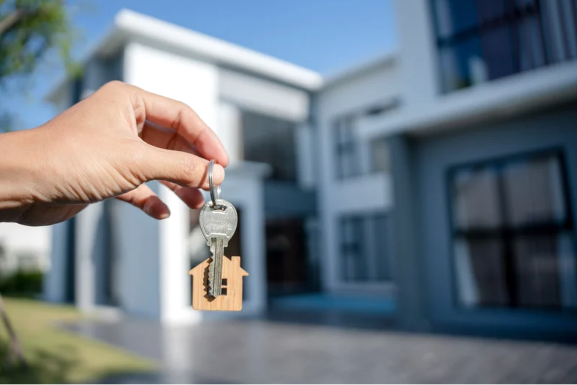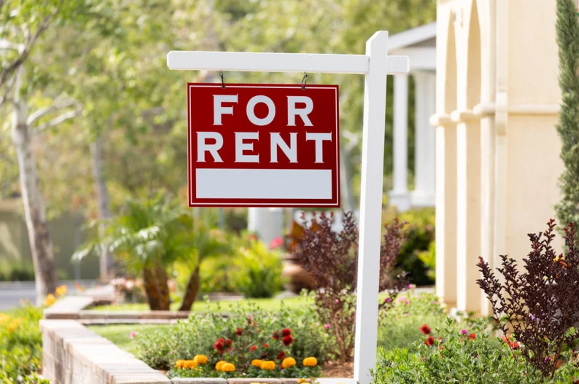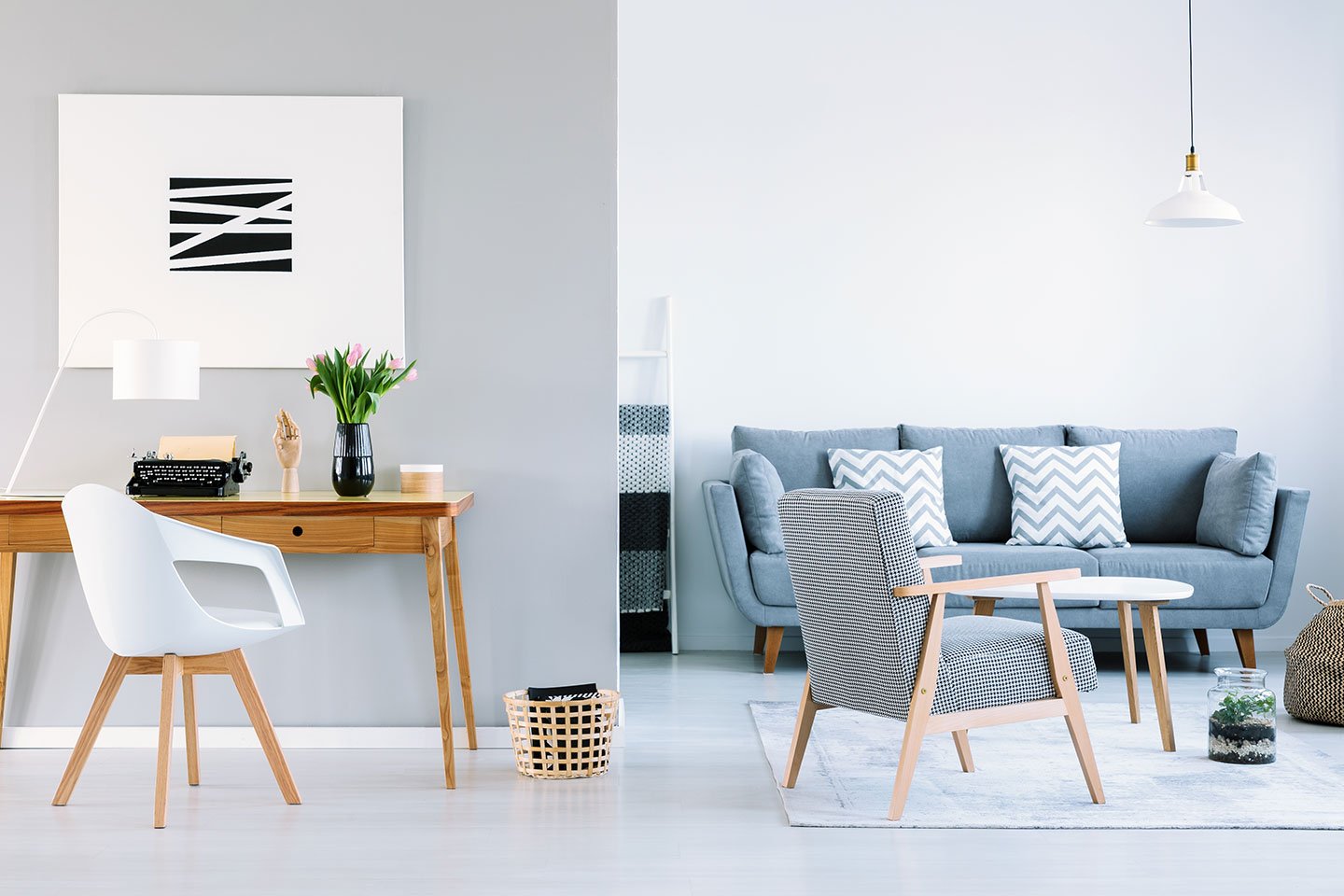- Home
Homepage Templates
Discover Your Dream Home
- Step into a new chapter—your perfect space awaits.
- Find comfort, elegance, and a place to call home.
- Where style meets serenity—live your best life here.
- Your dream home is just the beginning—let’s make it yours.
- Designed for living, built for you—explore your future today.

Buy a home
Buying a home is a big step, and there are several key factors to consider! - Define Your Priorities - Check Your Credit Score - Calculate Affordability - Explore Financing Options - Research the Market - Inspect the Property

Rent a home
Renting a home can be a great option, but there are key factors to consider before signing a lease. Set a Budget – - Choose the Right Location – - Inspect the Property – - Understand the Lease Agreement - Negotiate Smartly - Check for Hidden Costs

Sell a home
Selling a home requires careful planning to maximize value and attract buyers. Set the Right Price - Enhance Curb Appeal - Stage Your Home - Market Effectively - Work with a Trusted Agent - Prepare Legal Documents
- Listing

Listing Styles
.This menu tab features a variety of categories to your visually listings pages.
List Layout Style
- Property
Property Detail Page Templates
This menu tab features a variety of categories designed to engaging your visually appealing homepages.
Categories
Property Types
New Project
City

Find Your Dream Home
We make the process easy and understandable. We make sure to clarify your options and offer you strategies to get your dream home quickly.
- Realtor
- Others
Frequently Asked Questions
Common questions and answers related to a specific topic, product, or service designed to help users quickly find information. If you can’t find what you're looking for, feel free to contact us — we’re happy to help!
Top queries ( frequently asked questions) when buying a Property in Malaysia
Terrace houses, semi-D, bungalows
Apartments, condominiums, serviced residences
Leasehold vs. freehold titles
Yes—foreigners are allowed to buy residential property in Malaysia, subject to specific rules and restrictions.
- Foreigners can purchase residential properties (e.g. condominiums, apartments, landed houses) provided they meet minimum price thresholds.
Minimum price threshold, varies by state (RM600,000 to RM1 million)
Cannot buy low-cost housing, Malay Reserve land, or certain strata units
Freehold: Permanent ownership
Leasehold: Owned for a set period (usually 99 years); needs renewal after expiry
BSN MyHome, Skim Rumah Pertamaku, i-Biaya, Rumah Selangorku and others
Stamp duty exemptions for first-time buyers under a certain price (e.g., RM500k)
Buying a property in Malaysia involves a structured legal process. Whether you’re a foreigner or a local, the steps are broadly similar, but foreigners need additional approvals.
Step-by-Step Guide to Property Purchase in Malaysia
- Choose Property and Make an Offer
- Apply for Loan (Optional)
- Hire a Lawyer
- Sign the Sale and Purchase Agreement (SPA)
- Apply for State Consent (Foreigners Only)
- Pay the Balance Purchase Price
- Property Transfer and Title Registration
- Final Handover
Includes;
Down payment (usually 10%)
Legal fees (SPA + loan agreement)
Stamp duty
Valuation fee (for bank loan)
MOT (Memorandum of Transfer) stamp duty
Documents Required to Buy Property in Malaysia
Identification Documents (foreigner)
✅ Copy of passport (certified true copy, all relevant pages)
✅ Visa or residency permit (if applicable, e.g. MM2H)
✅ Proof of current address (utility bill, tenancy agreement, etc.)
✅ Tax identification number (from your home country, if relevant for financing or due diligence)
Financial Documents
✅ Bank statements (typically 3–6 months)
✅ Employment letter or proof of income
✅ Income tax returns or payslips
✅ Credit report (some banks may request this)
✅ MM2H financial proof (e.g. fixed deposit statements, if buying under MM2H)
Sale and Purchase Agreement (SPA)
Drafted and signed by buyer and seller
Includes full terms: price, payment schedule, completion time, conditions
Must be stamped and filed with the Inland Revenue Board (LHDN)
State Authority Consent Application (For Foreigners)
✅ Form 14A (Memorandum of Transfer)
✅ Stamped SPA
✅ Passport copy
✅ Property details & valuation
✅ Application letter and form (state-specific)
✅ Payment of application fees (varies by state)
Loan Documentation (If applicable)
✅ Loan Agreement (prepared by bank’s lawyer)
✅ Facility offer letter (mortgage terms)
✅ Letter of instruction for fund release
✅ Charge documents (to register the bank’s interest in land office)
Other Supporting Documents
✅ Land Title / Strata Title (from seller—freehold or leasehold)
✅ Valuation report (for mortgage or tax purposes)
✅ Utility clearance letters (e.g. from TNB, water board, management office)
✅ Quit rent & assessment receipts (from seller)
Optional but Helpful Documents
💡 Letter of Offer / Booking Form (initial document showing purchase intent)
💡 Tenancy agreement or income proof (if property is intended for rental or investment)
💡 MM2H approval letter (if buying under the Malaysia My Second Home program)
Local buyers can get up to 90% loan margin (for first two properties)
Subject to Debt Service Ratio (DSR), income level, credit score (CCRIS/CTOS)
Under Section 433B of the National Land Code
Required before the transfer of ownership
Takes 1–3 months, depending on the state
Can be rejected if:
Property is on Malay Reserve Land
Below state minimum price
Falls under Bumiputera quota
Located in restricted zones (some areas are off-limits to foreigners)
Foreigners cannot buy:
✅ Malay Reserve Land
✅ Bumiputera-only lots
✅ Low- and low-medium-cost housing
✅ Government-subsidized housing (e.g. RUMAH PR1MA)
✅ Agricultural land (unless specifically approved and converted to residential)
Condominiums and serviced apartments
Landed property in gated communities (in some states)
Commercial-titled properties with residential usage (e.g., SoHo)
Yes. Foreigners must get State Authority Consent, which is normally granted unless restricted.
Typical thresholds:
Kuala Lumpur: RM1 million
Selangor: RM2 million (landed); RM1.5 million (strata)
Penang: RM800,000 (mainland); RM1 million (island)
(Each state has its own rules)
If you’re financing the purchase from abroad or plan to repatriate sale proceeds later, you must:
Declare the source of funds
Use an authorized dealer bank to comply with Bank Negara Malaysia (BNM) foreign exchange rules
Ensure SPA and transaction are properly registered and stamped (to avoid issues during repatriation)
Foreigners can own both, but leasehold titles require careful review:
Check remaining lease tenure (banks typically avoid <60 years)
For lease extensions, you must apply to the Land Office, which may charge a premium
Some leasehold titles don’t allow transfer to foreigners without special consent
If buying a condo or apartment:
Ensure the Strata Title is issued
Review the Management Corporation (MC) rules (some buildings restrict Airbnb, short-term rentals, etc.)
Check for outstanding maintenance or sinking fund fees
Understand foreign owner limits (some developments cap foreign ownership at 30%–50%)
Can get 60–80% loan margin, but approval is stricter than for locals
Must provide more extensive documentation (bank statements, tax returns, etc.)
Some banks limit loans to properties above RM 1 million
Tax on the gain when selling property:
30% (within 3 years), then decreases
No RPGT for Malaysian citizens after 5 years
Foreigners always pay 10% RPGT after 5 years
If buying under the Malaysia My Second Home (MM2H) program:
Must purchase a property within specific price bands (e.g. RM 600K–1M+)
Some tiers require holding the property for 10+ years
Failing to comply may revoke your visa
Yes,
Most require:
20%–30% down payment (max 70% loan margin)
Proof of income (employment letter, payslips, bank statements)
Valid visa/passport
Some banks require local guarantor or co-borrower
💡 CIMB, Maybank, HSBC, and Standard Chartered have expat mortgage packages.
some local banks offer loans to foreigners (margin usually 60–80%)Not all banks offer to foreigners
Requires proof of income, valid visa/passport, and higher down payment
Yes, possible. But both names must be on loan and SPA
For foreigners, joint purchase with Malaysian spouse is allowed but may require special approval
Yes, locals and foreigners can rent out property
For strata properties, condo management rules may apply
No additional taxes, but the usual charges apply:
Stamp duty on SPA: 1–4% (same as locals)
Legal fees: ~1% of purchase price
Valuation + bank fees: if applying for a local mortgage
✅ Malaysia is more foreign-friendly than many Asian countries
Yes, if you’re a foreigner buying:
Landed property (especially in Selangor, Penang, Johor)
Commercial property
Property via a foreign company
Approval is issued by the State Authority and may take 1–3 months. Strata condos often do not need approval unless specified by state.
✅ Yes, for medium to long-term investors:
Strong rental markets in KL, Selangor, Penang, Johor
Lower prices compared to Singapore/HK
Buying a property does not automatically give you a visa, but:
You can apply for Malaysia My Second Home (MM2H) or Sarawak-MM2H
Owning property strengthens your MM2H visa application
📌 MM2H visa requires minimum income + liquid assets
- Stamp Duty on Sale and Purchase Agreement (SPA) – Stamp duty is calculated progressively, meaning each portion of the property price is taxed at its respective rate. For example, if a property is priced at RM1.5 million, the stamp duty would be 1% on the first RM100,000, 2% on the next RM400,000 (RM100,001 to RM500,000), 3% on the following RM500,000 (RM500,001 to RM1,000,000), and 4% on the remaining RM500,000 (above RM1,000,000).
- Stamp Duty on Loan Agreement – Rate: 0.5% of the loan amount.
- Legal Fees – Legal fees for the Sale and Purchase Agreement (SPA) are calculated on a sliding scale based on the property price: a) For the first RM500,000: 1.25%. b) For the portion between RM500,001 and RM7,500,000: 1.00%. c) For amounts above RM7,500,000: Negotiable, but generally not exceeding 1%.
- Valuation Fees
- Real Property Gains Tax (RPGT).
- Open a Malaysian Bank Account (If Needed) – If you’re a foreign buyer, opening a bank account in Malaysia is often necessary to facilitate transactions, especially for receiving refunds or managing payments.
- Obtain Approval from Bank Negara Malaysia (BNM) – For foreign buyers transferring funds from overseas, Bank Negara Malaysia regulates foreign exchange and capital flows. Usually, funds must be remitted through an authorized dealer (licensed banks or financial institutions) to comply with foreign exchange regulations.
- Use Authorized Banks or Licensed Money Changers – Always use authorized banks or licensed money changers to transfer funds into Malaysia. Avoid informal or unofficial channels to ensure legal compliance and transparency.
- Provide Necessary Documentation – When transferring large sums, banks may require supporting documents such as the Sale and Purchase Agreement (SPA), proof of the source of funds, identification documents, and tax compliance certificates.
- Declare the Purpose of the Transfer – Clearly specify that the funds are for property purchase in Malaysia when making the transfer. This helps ensure the money is treated correctly for legal and tax purposes
- Observe Anti-Money Laundering (AML) Requirements – Banks will conduct due diligence checks under AML laws. Be prepared to answer queries regarding the origin of funds.
- Compliance with Real Property Gains Tax (RPGT) and Other Taxes – Ensure you understand and comply with RPGT and other tax obligations related to property transactions.
Top FAQs for renting a Property in Malaysia
Yes, foreigners can rent all types of residential property, including:
Condominiums & apartments
Serviced residences
Landed houses (terrace, semi-D, bungalow)
Gated communities
There are no restrictions on rental by nationality or visa type (e.g. MM2H, student visa, work permit, etc.).
Property Search
Choose based on:
Location
Budget
Furnishing level (fully / partially / unfurnished)
Access to transport, schools, hospitals
Booking & Letter of Offer
Pay a booking deposit (typically 1 month’s rent) to secure the unit
Sign a Letter of Offer / Intent to Rent
Tenancy Agreement
Legally binding contract between tenant and landlord Includes:
- Names of parties
- Rental amount and due date
- Security deposit terms
- Duration (usually 1 or 2 years)
- Utility responsibilities
- Clause for renewal or early termination
Stamp Duty (LHDN Requirement)
Tenancy agreements must be stamped at LHDN (Inland Revenue Board)
Paid by tenant (unless agreed otherwise)
Move-In & Inventory Check
Review and sign inventory checklist (furniture, condition of walls, appliances)
Take photos of existing damage
Get access cards, keys, mailbox access, etc.
- Copy of passport
- Valid Visa/pass/work permit/MM2H letter
- Employment letter or offer letter
- Reference (optional)
Proof of income or bank statement
Some landlords may request a local guarantor
Tenancy is usually renewable with mutual agreement.
Give 2 months’ notice if leaving
Landlord returns deposit after:
Final inspection
Deducting damages or unpaid bills
Ask to see the land title or quit rent (cukai pintu)
Deal through a licensed real estate agent
Ensure the landlord’s name matches the owner on the title
No. Agreements vary. Read carefully for:
Duration
Termination clause
Deposit refund terms
Repairs and maintenance responsibilities
No, unless it is stated in the contract. Rent is usually renegotiated upon renewal.
After inspection, if no damage or unpaid bills are found, the landlord must refund within a reasonable period (14–30 days).
Yes. Tenants typically pay the tenancy agreement stamp duty, based on rental amount and lease duration.
- Parties Involved – Landlord (Lessor): The legal property owner.
- Tenant (Lessee): The person renting the property.
Property Details – Full address and type of property (e.g., apartment, condo, landed house).
Includes parking bays (if any), fixtures, and furnishings.
Tenancy Period – Common durations: 1 or 2 years.
Option to renew with or without changes in rent (should be stated clearly).
Rental Amount – Monthly rent amount (e.g., RM2,000/month).
Due date (usually by the 1st–7th of each month).
Payment method (bank transfer, cash, cheque).
Deposit Structure – Security Deposit: 2 months’ rent (refundable at end of tenancy).
Advance Rent: 1 month’s rent (covers the first month).
Utilities Deposit: 0.5 month’s rent (for unpaid bills).
Utility Bills & Charges – Tenants usually pay for:
Electricity, water, internet, Indah Water, and Astro (if applicable).
Maintenance & Repairs – Landlord usually pays for:
Property quit rent and assessment tax.
Tenant: Minor repairs and keeping the property in good condition.
Landlord: Major repairs, structural faults, or replacement of provided appliances.
Use of Premises – Residential use only.
No illegal activities, commercial use, or subletting unless with written consent.
Termination Clause / Diplomatic Clause – Early termination is usually not allowed unless there’s a diplomatic clause (common for expats).
Diplomatic clause: Tenant may terminate after 12 months with 2 months’ notice if transferred overseas or job ends.
Renewal Option – Typically gives the tenant the first right to renew the tenancy.
Terms of renewal (rent increase, notice period) should be stated.
Inspection & Handover – Property should be handed back in original condition (excluding normal wear and tear).
Inventory List ( If furnished) An inspection checklist is often included.
- Detailed list of all furniture, appliances, and their condition and Signed by both parties during handover.
Pets Policy: Usually not allowed in condos unless approved by management.
Smoking Policy: Often restricted to balconies or outdoors.
Subletting: Not allowed unless written consent is given by landlord.
